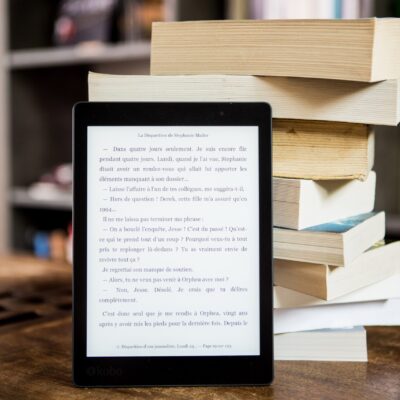Easy Beauty by Chloé Cooper Jones
Individuals with disabilities and those who love them constantly deal with scenarios like the one introduced at the beginning of this essential book. Chloé Cooper Jones writes: “I am in a bar in Brooklyn listening to two men, my friends, discuss whether or not my life is worth living.” Too tired to confront them after a day spent teaching, making dinner, and putting her five-year-old to bed, she sits through their conversation from a remove, seals herself up, and becomes a statue.
The author continues to describe the experience.
The men bicker over the issue of my unfortunate birth. I search for anger and find only numbness.
I center myself in The Neutral Room, a separate space inside my mind I constructed when I was very young as a method for dissociating from physical pain. There are no doors or windows in the neutral room, nothing but white walls, and on the walls, one at a time, gray numbers flash…
1 2 3 4, 5 6 7 8, 1 2 3 4, 5 6 7 8 [pp. 1, 2]
Chloé Cooper Jones explains that she was born without a sacrum, the bone that connects the spine to the pelvis. The medical name for her disability is sacral agenesis. It is a rare congenital condition which causes her legs from the knees down and her feet to be underdeveloped and disproportionate to the rest of her body.
My spine is curved, which makes my back arch forward. I have hip dysplasia, which means my hip joints are misaligned and unstable — the ball part of the joint grinds on a flat plane of bone in search of a socket that never formed. This hurts and I’m never not aware of it; pain plays a note I hear in all my waking moments. [p. 17]
Pain is not the only constant negative in the author’s life. People stare, ridicule, pity, infantilize, demonize, and dehumanize, dismissing her as ‘less than.’ Early in the book, the author describes a visit to the Galleria Borghese where a complete stranger totally invades her space and attempts to “teach” her about her disability.
The stranger needs to talk at me, needs to explain and label. He wants an uncertain thing to yield to a category assigned by his reason.
“What people don’t realize is —” He keeps talking and I let him, but I’ve already retreated to the neutral room in my head where I’m having a different conversation with no one. He’s performing a familiar soliloquy about how beauty standards are really made up by marketers and shift with the times and I’m nodding politely, waiting for the moment to pass. I’ve been here before and I know what comes next. In a minute he’ll tell me beauty is in the eye of the beholder. [p. 11]
Easy Beauty is memoir at its best, an honest reporting of imperfect memories, vulnerability, and self-discovery. Of trying to make yourself better. Of forcing yourself to face the ways you have been complicit in your unhappiness. In one review, reading the book is aptly compared to having a “generous, compassionate conversation with a person who is not only wise and intelligent, but endlessly gracious in her probings of the world around her.”
I couldn’t agree more!
















